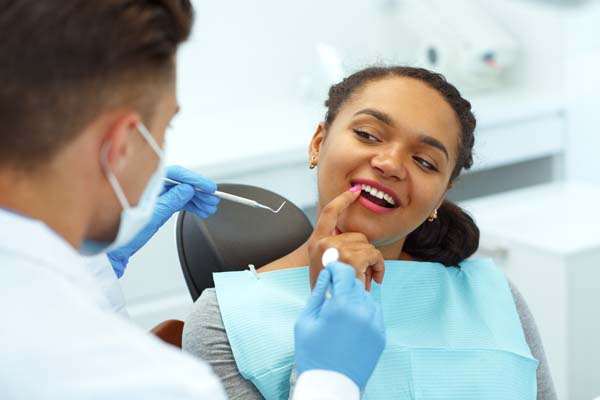General Dentistry: Why Is Snacking So Bad for Your Teeth?

Have you ever wondered what general dentistry professionals think about how snacking affects your dental health? Snacking in between meals is a great way to refuel your body and keep you going until your next meal.
However, many people substitute snacks for meals, which can be bad for your teeth. In general dentistry, there is a belief that frequent snacking does as much damage to your teeth as eating candy or drinking sodas.
Why is snacking so bad for your teeth?
For general dentistry practitioners, snacking is considered to be bad for your teeth because anytime you snack on sugary or starchy foods, the sugar and starch combined with the bacteria in your mouth to form acids that wear down your enamel.
When your enamel is weakened, the structure of your teeth becomes compromised, leading to tiny holes known as cavities, a form of tooth decay. If the cavities in your teeth are left unchecked, they can lead to further tooth decay and, eventually, tooth loss.
What should I do if I cannot snack?
Even though snacking can be bad for your health, you can still enjoy some of your favorite snacks as long as you do so in moderation. If you want to protect your teeth, you will also have to practice good oral hygiene.
The American Dental Association recommends brushing your teeth at least twice a day and flossing regularly. Ideally, general dentistry practitioners would prefer it if you brushed your teeth after every meal but that is not very practical, especially if you snack a lot.
The best way to protect your teeth after snacking is to rinse with either fluoride mouthwash or tap water because most of the tap water in the country has fluoride in it.
Limiting your snacking
There are plenty of ways to reduce the amount of snacking you do each day, helping to protect your teeth. Some of the most popular techniques used to reduce snacking in general dentistry include:
- Eating breakfast: It is said that breakfast is the most important meal of the day, but a lot of people skip breakfast, opting for alternatives to snack on. If you eat a big meal for breakfast every day, your body gets fueled and your appetite is curbed, meaning you are likely to eat fewer snacks
- Drink water: Drinking water helps to hydrate your body and helps you feel less fatigued. Water is also a better alternative to any soda or sugary drink because it does not damage your teeth as sugary drinks do
- Eat less sugar: If you want to eat a snack, try avoiding sugary snacks and processed foods
- Have a healthy diet: A balanced diet is very important to your general and oral health, which is why you should eat a lot of healthy food, fruits and vegetables to help you maintain a balance
Conclusion
Snacking is bad for your teeth because many snacks have plenty of sugar and carbohydrates. If you want to learn more about the negative effects of snacking on your teeth, talk to your dentist to understand how snacking affects your teeth.
Request an appointment here: http://www.hendersonfamilydentistry.com or call Henderson Family Dentistry at (903) 657-3139 for an appointment in our Henderson office.
Check out what others are saying about our services on Google: Read our Yelp reviews.
Related Posts
You may need a dental crown, but it all depends on your root canal treatment. Your dentist will be able to tell you if you need dental work beyond the treatment. Needing a crown is determined by the location and severity of the root canal. Crowns can be recommended because they protect your existing teeth…
Root canal treatment may seem intimidating at first, but the more prepared you are the less likely you are to experience anxiety. Continue reading to learn how to prepare for this procedure. The following review discusses three tips you can use to prepare properly ahead of your scheduled root canal treatment.You can prepare for a…
Root canal treatment is often the best (or only) way to deal with an abscessed tooth that results from a tooth infection. This review discusses the role root canal treatment plays in treating an abscessed tooth and what you can expect throughout the diagnostic and treatment processes.An abscessed tooth can affect one’s ability to function…
A root canal treatment is capable of retaining the natural tooth structure and replacing the damaged pulp with a dental filling. This procedure has a reputation of being painful. Even so, many people still have it. If you want to know how common a root canal treatment is, here are the details.Studies show that dentists…
